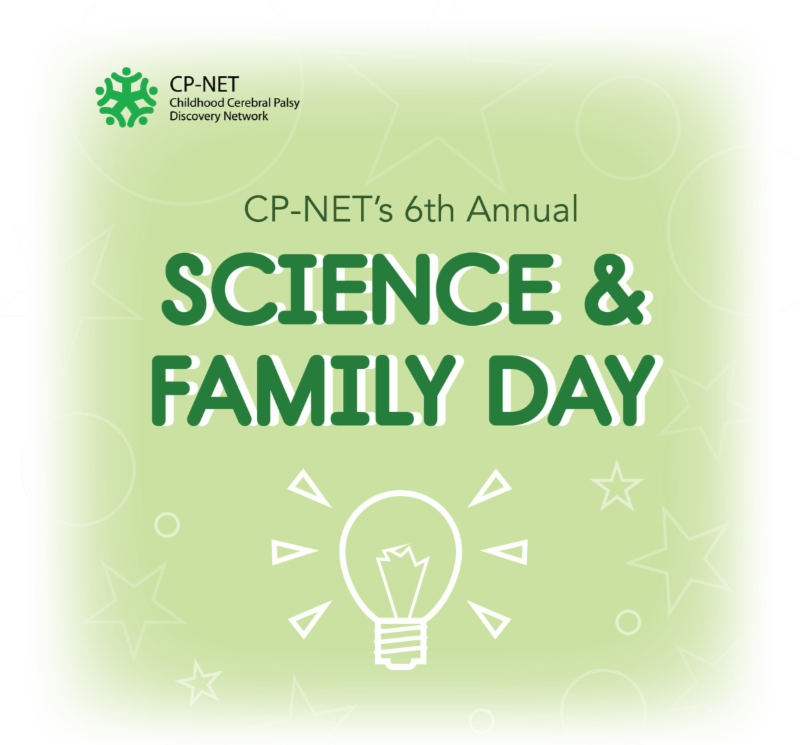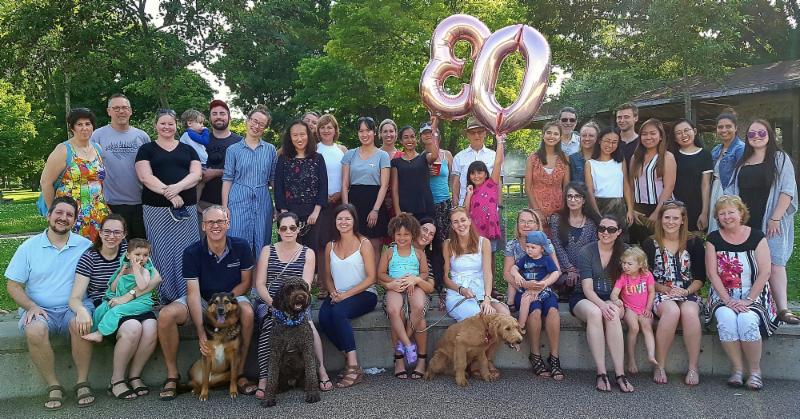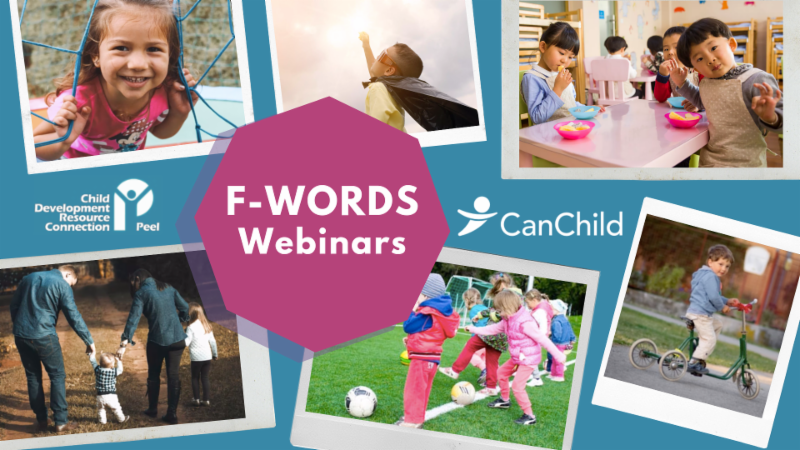|
Welcome to the July edition of
CanChild Today! In this issue, we are excited to share a research opportunity, news and
publications by some of our
CanChild
members
!
2019 marks the 30th anniversary of CanChild -
use the hashtag
#CanChild30
on social media and celebrate with us!
Please feel free to share CanChild resources & newsletter with family, friends and colleagues.
They can subscribe to the
CanChild Today! Newsletter for free by registering
here
.
Our past issues are archived on the CanChild website and can be accessed here.
|
|
|
|
Save the Date!
 |
Save the date for the Annual CP-NET Science and Family Day on
October 5, 2019 at Abilities Centre, Whitby, Ontario. Celebrate the World Cerebral Palsy Day with a day of learning about the newest CP-NET research, technological advancements and community resources! Registration starts on August 15! Visit the
CP-NET website to learn more!
|
|

|
| CanChild continues to celebrate its 30th anniversary with the 'F-Words'! For this month, the CanChild staff and their Family members celebrated at the annual summer party! Stay tuned to our next newsletters that will highlight Friends and Future. You can also check out past activities about Fun, Fitness and Function here! |
|

|
When it comes to disabilities, CanChild focuses more on the CAN versus the cannot. Learn more about this approach from the FREE 'F-Words' in Childhood Disability webinars! CanChild in partnership with Child Development Resource Connection Peel (CDRCP) have produced six webinars explaining Function, Family, Fitness, Fun, Friends & Future in the context of childhood disability!
Watch them now on the CanChild Facebook Page, CanChild website or the CDCRP website!
|
|
|
Participate in a Research Study!

|
Better Nights, Better Days for Children with Neurodevelopmental Disorders is recruiting families for their study! Parents of children from 4-10 years old with
Attention Deficit/Hyperactivity Disorder, Autism Spectrum Disorder, Cerebral Palsy, or Fetal Alcohol Spectrum Disorder and who experience difficulty in falling asleep are welcome to participate!
|
|
Recent Publications by CanChild Members!
|
What Comes First: Return to School or Return to Activity for Youth After Concussion? Maybe We Don't Have to Choose
Using Return to School (RTS) and Return to Activity (RTA) protocols are important aspects of concussion management and recovery. This new publication investigates recovery trajectories of children while following RTA/RTS protocols, compares the rates and patterns of progression through the stages of both RTA and RTS and proposes a new model for concussion management in youth that involves the integration of RTA and RTS protocols. Authors: DeMatteo CA, Randall S, Lin C-YA, Claridge EA. Frontiers in Neurology. doi: 10.3389/fneur.2019.00792
|
This qualitative study generated four themes about the lived experiences of individuals with Cerebral Palsy (CP): (1) they encounter physical and mental health challenges, (2) seek meaningful participation in sports, education, employment, and other recreational activities, (3) deal with social relationships and physical environment, and (4) recognize the influence of CP to personal identity. To promote health and participation for individuals with CP, the approach should go beyond looking at the physical condition and include social, environmental, and psychological factors. Healthcare professionals should use a lifecourse approach, provide comprehensive care for young adults, and include counselling about mental health and sexual identity.
Authors:
Hanes JE,
Hlyva O,
Rosenbaum P,
Freeman M,
Nguyen T,
Palisano RJ,
Gorter JW.
Child Care Health Dev. doi:
10.1111/cch.12705
|
Parents of children with disabilities are more likely to experience stress, depression, and anxiety. Parents' mental health also impacts child development and family well-being. The purpose of this review is to explore the potential harms and benefits of implementing parent mental health screening in a child rehabilitation environment. Results suggest that service providers may be well placed to identify parent mental health concerns, but should consider the level of evidence for screening and whether additional supports are available prior to implementation.
Authors:
Popov N
,
Phoenix M
,
King G.
Disabil Rehabil. 2019 June 30. doi:
10.1080/09638288.2019.1635657
|
The Participation and Environment Measure Plus (PEM+) is a tool that assists caregivers in setting participation-focused goals for young children with disabilities and identifying strategies for meeting these goals. To test and enhance the usability of PEM+, six caregivers completed the PEM+ online and provided feedback. According to this study, the PEM+ is a promising tool for service providers to partner with families when planning occupational therapy services. Authors: Jarvis JM, Gurga A, Greif A, Lim H, Anaby D, Teplicky R, Khetani MA. Am J Occup Ther. 2019 Jul/Aug. doi: 10.5014/ajot.2019.032235
|
|
 |
|
Canadian Anti-Spam Legislation
You are a member of the CanChild Today electronic newsletter generated by CanChild at McMaster University. If you believe that you should not be a recipient, you may withdraw your consent to receive these messages at any time, in accordance with Canadian Anti-Spam Legislation (CASL) and subject to McMaster University policy, by contacting the sender of this message, or by clicking on the 'SafeUnsubscribe' link at the bottom of this newsletter.
|
|
|
|
|
|